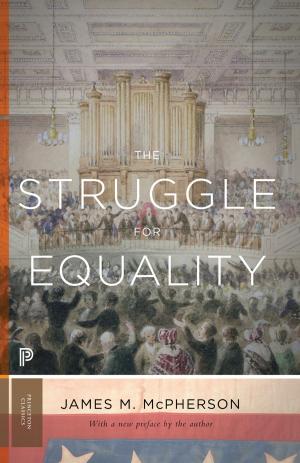| Author: | Nelson Lichtenstein | ISBN: | 9781400838523 |
| Publisher: | Princeton University Press | Publication: | October 26, 2012 |
| Imprint: | Princeton University Press | Language: | English |
| Author: | Nelson Lichtenstein |
| ISBN: | 9781400838523 |
| Publisher: | Princeton University Press |
| Publication: | October 26, 2012 |
| Imprint: | Princeton University Press |
| Language: | English |
In a fresh and timely reinterpretation, Nelson Lichtenstein examines how trade unionism has waxed and waned in the nation's political and moral imagination, among both devoted partisans and intransigent foes. From the steel foundry to the burger-grill, from Woodrow Wilson to John Sweeney, from Homestead to Pittston, Lichtenstein weaves together a compelling matrix of ideas, stories, strikes, laws, and people in a streamlined narrative of work and labor in the twentieth century.
The "labor question" became a burning issue during the Progressive Era because its solution seemed essential to the survival of American democracy itself. Beginning there, Lichtenstein takes us all the way to the organizing fever of contemporary Los Angeles, where the labor movement stands at the center of the effort to transform millions of new immigrants into alert citizen unionists. He offers an expansive survey of labor's upsurge during the 1930s, when the New Deal put a white, male version of industrial democracy at the heart of U.S. political culture. He debunks the myth of a postwar "management-labor accord" by showing that there was (at most) a limited, unstable truce.
Lichtenstein argues that the ideas that had once sustained solidarity and citizenship in the world of work underwent a radical transformation when the rights-centered social movements of the 1960s and 1970s captured the nation's moral imagination. The labor movement was therefore tragically unprepared for the years of Reagan and Clinton: although technological change and a new era of global economics battered the unions, their real failure was one of ideas and political will. Throughout, Lichtenstein argues that labor's most important function, in theory if not always in practice, has been the vitalization of a democratic ethos, at work and in the larger society. To the extent that the unions fuse their purpose with that impulse, they can once again become central to the fate of the republic. State of the Union is an incisive history that tells the story of one of America's defining aspirations.
In a fresh and timely reinterpretation, Nelson Lichtenstein examines how trade unionism has waxed and waned in the nation's political and moral imagination, among both devoted partisans and intransigent foes. From the steel foundry to the burger-grill, from Woodrow Wilson to John Sweeney, from Homestead to Pittston, Lichtenstein weaves together a compelling matrix of ideas, stories, strikes, laws, and people in a streamlined narrative of work and labor in the twentieth century.
The "labor question" became a burning issue during the Progressive Era because its solution seemed essential to the survival of American democracy itself. Beginning there, Lichtenstein takes us all the way to the organizing fever of contemporary Los Angeles, where the labor movement stands at the center of the effort to transform millions of new immigrants into alert citizen unionists. He offers an expansive survey of labor's upsurge during the 1930s, when the New Deal put a white, male version of industrial democracy at the heart of U.S. political culture. He debunks the myth of a postwar "management-labor accord" by showing that there was (at most) a limited, unstable truce.
Lichtenstein argues that the ideas that had once sustained solidarity and citizenship in the world of work underwent a radical transformation when the rights-centered social movements of the 1960s and 1970s captured the nation's moral imagination. The labor movement was therefore tragically unprepared for the years of Reagan and Clinton: although technological change and a new era of global economics battered the unions, their real failure was one of ideas and political will. Throughout, Lichtenstein argues that labor's most important function, in theory if not always in practice, has been the vitalization of a democratic ethos, at work and in the larger society. To the extent that the unions fuse their purpose with that impulse, they can once again become central to the fate of the republic. State of the Union is an incisive history that tells the story of one of America's defining aspirations.















